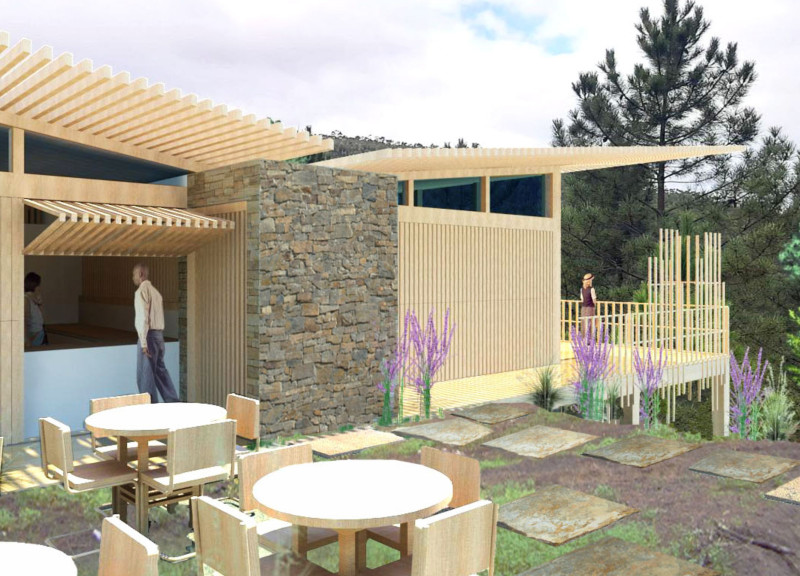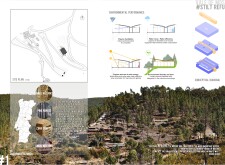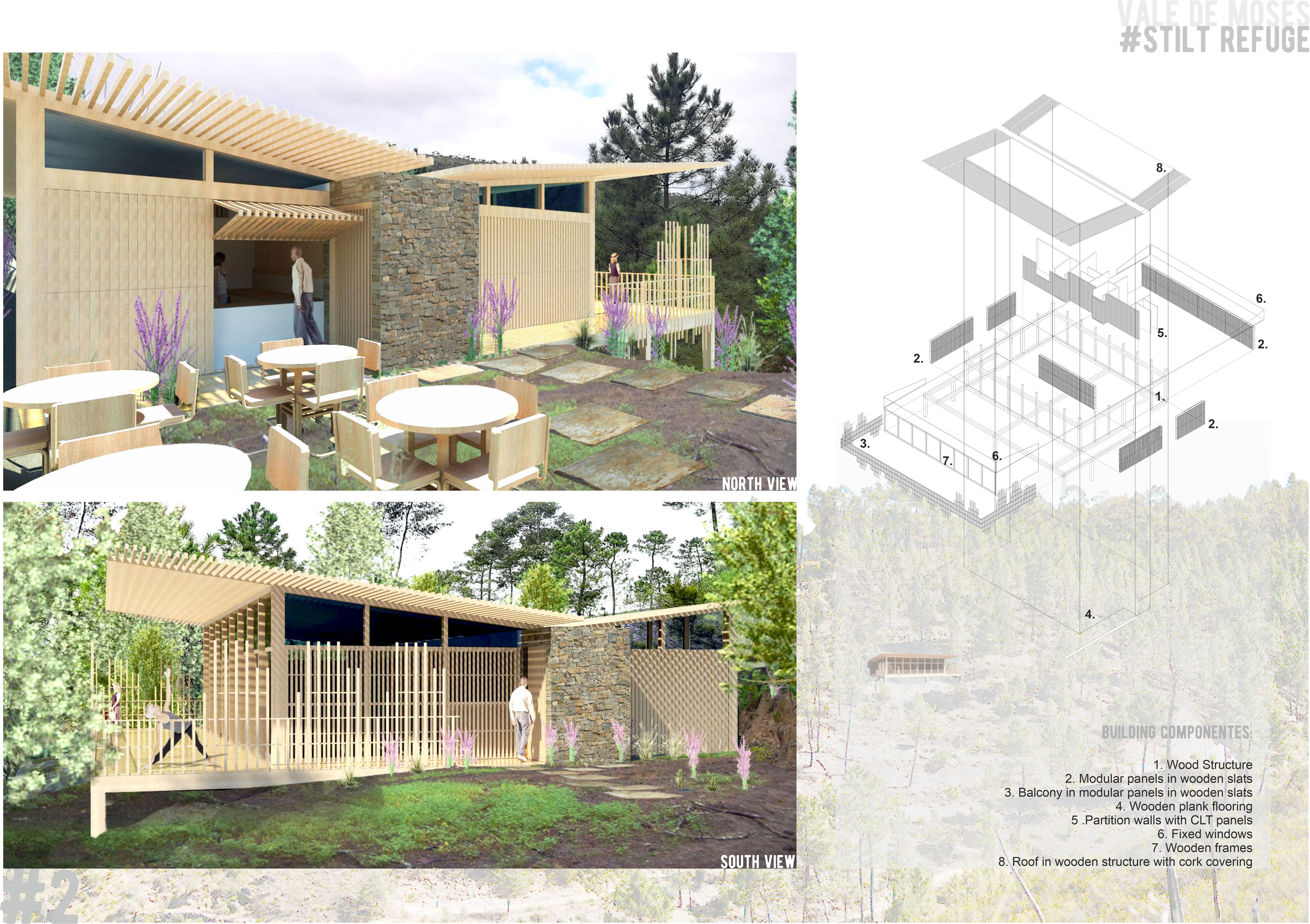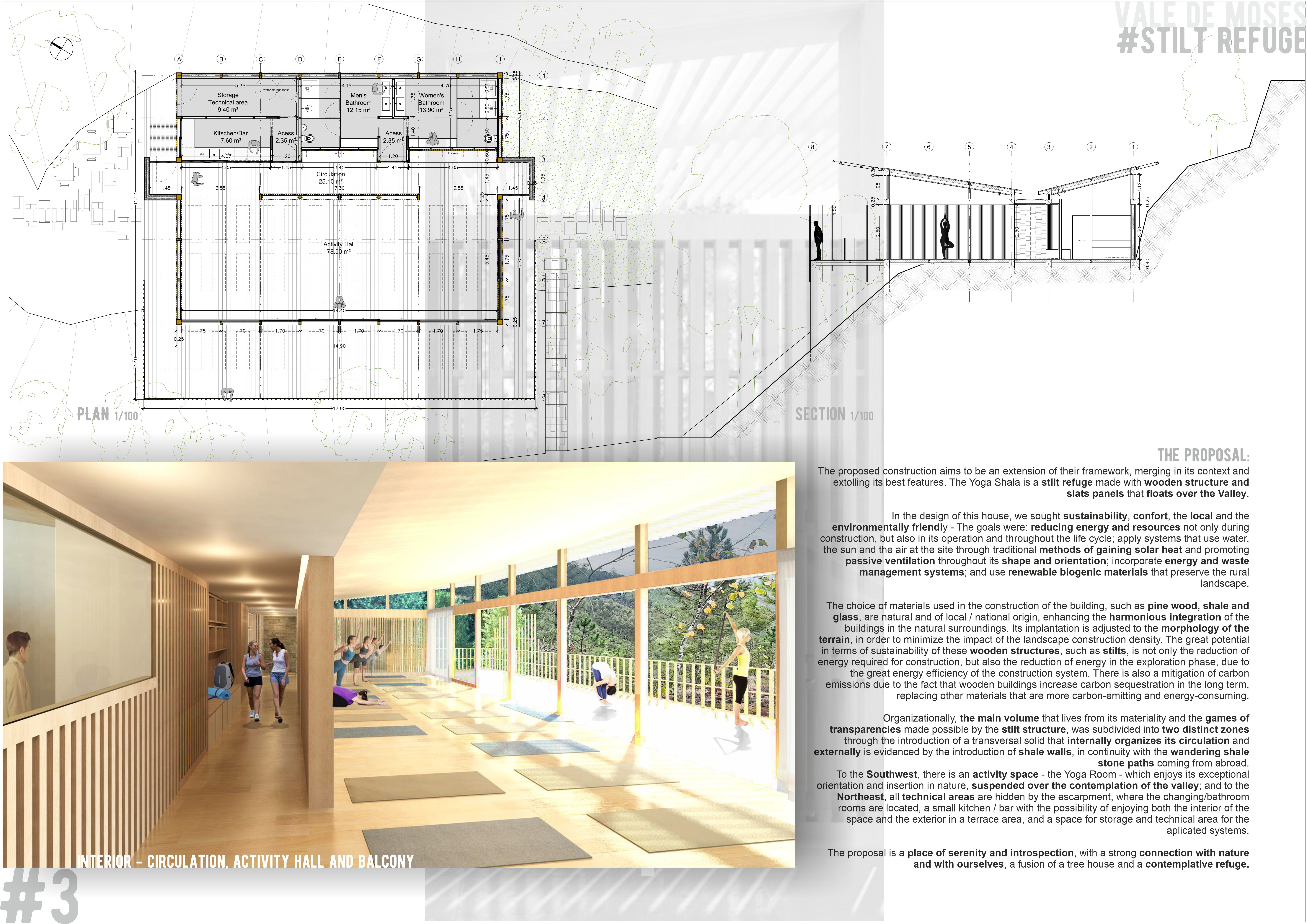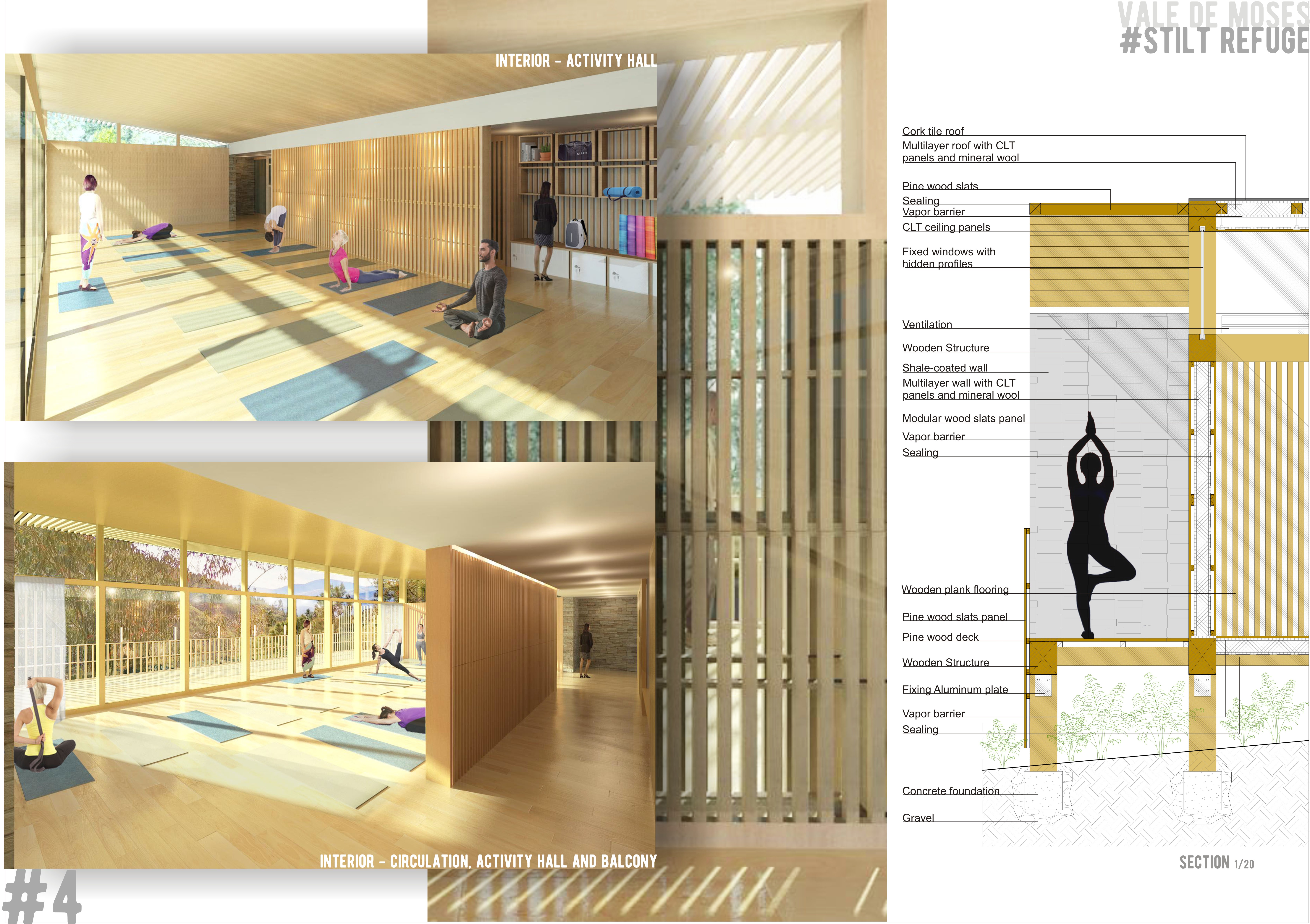5 key facts about this project
Vale de Moses is located in central Portugal, surrounded by the natural beauty of pine forests and the winding Zezere River. The building functions as a retreat, designed for relaxation and reflection. The overall design concept focuses on blending with the environment while promoting wellness. The structure creates connections between indoor and outdoor spaces, allowing individuals to engage meaningfully with nature.
Site Integration
The design is carefully arranged to interact with the landscape. Spaces like the Circulation Hall, Technical Area, and Yoga Hall facilitate movement and connection among users. This layout encourages engagement while providing spots for quiet contemplation within nature. The elevation of certain areas above the valley floor helps reduce the structure's environmental footprint and offers views that enhance a sense of peace.
Sustainable Design
Sustainability is a key focus in the project’s approach. Passive ventilation is incorporated to allow air flow without reliance on mechanical systems. Water management systems effectively capture rainwater for reuse, significantly lowering overall water usage. Solar panels and equipment for water heating are thoughtfully integrated, making efficient use of the natural resources available.
Material Applications
Locally sourced materials are an important aspect of the design, reflecting a commitment to traditional methods and ecological practices. The main structure is built from wood, creating a visual link to regional construction styles. The facade is made of wooden slats, providing both lightness and connection to the surrounding environment. Inside, cross-laminated timber (CLT) panels are used for the partition walls, contributing to overall stability and comfort.
Spatial Experience
Vale de Moses encourages a sense of calm and community. Thoughtfully designed spaces foster opportunities for personal reflection and social interaction. The Yoga Hall, elevated and open, provides uninterrupted views of the valley, enhancing the experience of being in the landscape. This design choice underscores the overall intention to create a peaceful, inviting environment where nature is always present.


